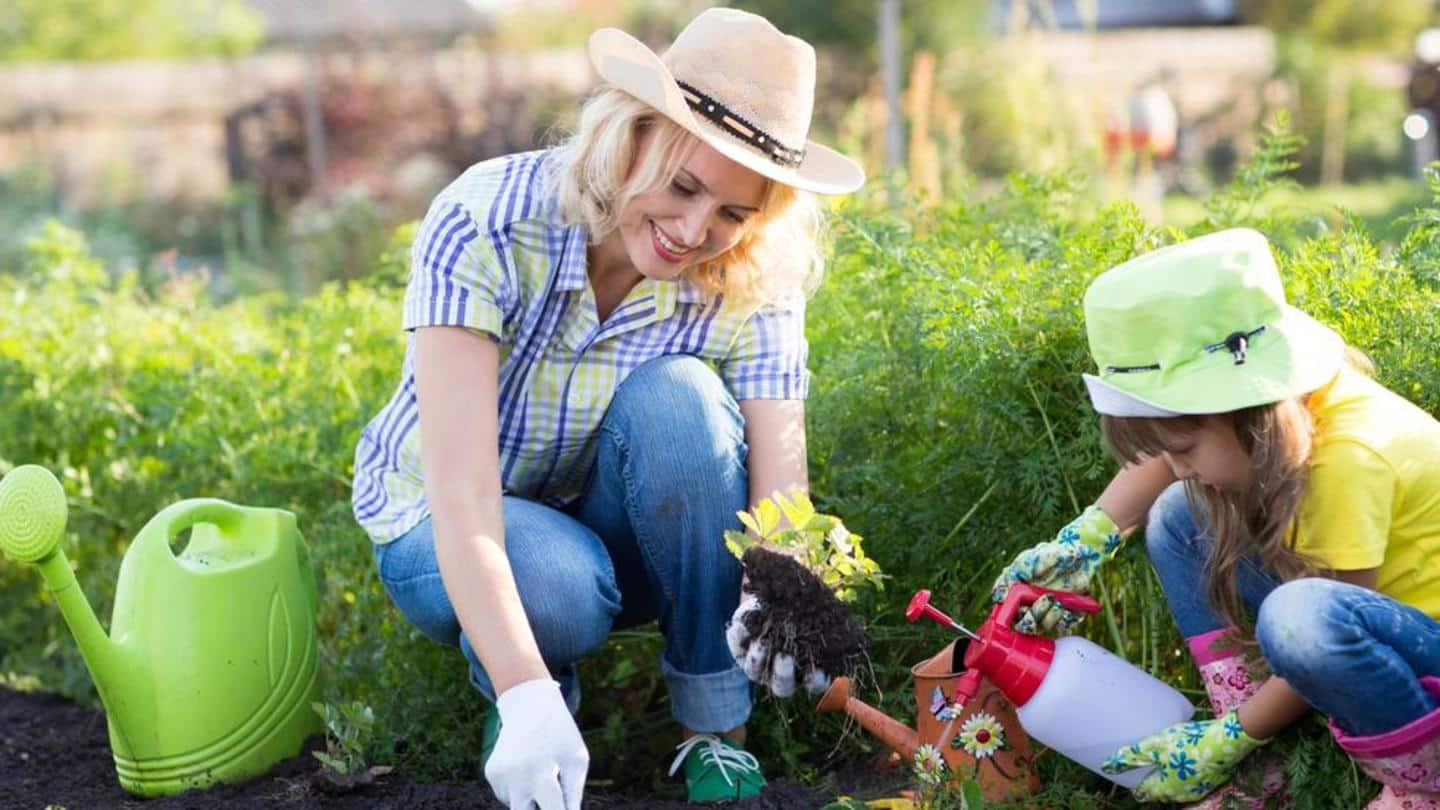
Gardening 101: Easy-to-grow outdoor plants for beginners
What's the story
Gardening is one of the many hobbies you can take up during the ongoing pandemic. It is quite easy to become a plant person if you have some time on your hand, and the dedication to look after these beautiful living beings. A decent backyard is always a plus point. So if your thumb isn't green yet, these crops and flowers can help.
Tomatoes
Tomatoes: Home grown healthy vegetable
Growing tomatoes is a rewarding task, resulting in fresh, nutritious vegetables that taste better than the ones you buy. You can grow them from seeds of old tomatoes instead of buying new seeds. Just bury half of a tomato in a pot and as it decomposes, the seeds will grow and eventually bloom into a new plant, carrying bright red fruits.
Sunflowers
Add some color to your backyard with sunflowers
Sunflowers are tough plants that can tolerate heat, and are pest-resistant as well. They grow quickly, so they are apt for a new gardener. Preferably, plant your sunflowers from mid-April to May in direct sunlight. Water several times per week for your flowers to grow tall. Once they have grown a meter tall, add some support to help the stalk.
Lettuce
With lettuce, get your own salad greens
Another plant that boosts the confidence of novice gardeners is lettuce as it doesn't take much space to grow and requires basic maintenance. Go for leafy varieties like green, red, or oak leaf. They are easy because you don't need to wait for the plant to form a head. You can plant lettuce seeds either in spring or autumn.
Green beans
Green beans can also grow easily without much space
Beans are generally directly sown in the garden, one to two inches deep. Water the soil immediately after planting and then regularly, until they sprout. Pole beans will need some type of support to grow on. Be sure that some support is in place before you seed. Plant seeds at a rate of about 6-8 seeds, 6 inches apart. Place your beans in sun.
Tips
Lastly, some gardening tips for every beginner
Almost all the plants need 6-8 hours of full sun each day. So, figure out such spots in your garden. Add organic matter, like layers of compost, decayed leaves, dry grass clippings, or old manure to the soil to make it more fertile. Water the seedlings daily. Taper off as plants get larger. They also need frequent watering until their roots are established.